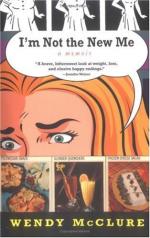Not so great a success were the Venetian blinds that he bought second-hand and gave to Armida to hang in the sitting-room. They proved to be in sorry condition, and Theodore was much mortified. Being a handy creature, he managed to patch them up so that, though they could not be rolled up, they looked very well from the outside; and, as he philosophically remarked:
“What more do you want, Armidy? A room you never set in, you don’t want any light in.”
There was one thing that Theodore would not do. He would not, as he said, fellowship with Jerry, Armida’s husband. “Tell you, Armidy,” he would say, “I can’t put up with a man like him.”
“Some folks call you shif’less, Theodore,” Armida retorted with bitterness.
“Well, I am,” he allowed; “but the difference is—I’m lazy, but work, my fashion; but he’s lazy, and don’t work at all.”
Though he disdained Jerry, he would rather do his tasks than see Armida’s interests suffer; and when he was not occupied with his still or peddling, he busied himself on her side of the farm. Lucas would at any time give him a helping hand rather than see Theodore hurt himself, and so Armida’s fences were mended and sundry repairs on her barns and out-houses made. Lucas was still as stiff as ever, and the help given was always to oblige Theodore, who laughed to himself but said nothing.
He once attempted to wheedle Lucas into painting at least all of the front of the house, but Lucas was not to be moved. Disappointed in that, Theodore brought home a pot of yellow paint when returning from his next expedition, and painted his sister’s half of the kitchen floor, in spite of her remonstrating that Lucas wouldn’t like it, though she acknowledged it looked pretty, and in spite of Lucas’s vexation at finding the room ridiculous.
“No more ridiculous than it was before,” Theodore assured him; “it couldn’t be. Besides,” he added, as an afterthought, “I’ll bring it plumb up to the middle, and neither of you will be trespassin’ on the other’s side. I noticed one of your chairs was a leetle grain onto Armidy’s side the other night, and that ain’t right.”
In the middle of an afternoon, as Lucas was ploughing out his corn, he heard a “Hello!” to which, when it had been two or three times repeated, he replied, though without looking around. Presently he heard some one coming, in a sort of scuffling run, and breathing heavily, and looked over his shoulder to see Theodore, who dropped into a walk as he spied him, and gasped: “Lucas! Say! Stop! Look here!”
“Well?” said Lucas, and pulled up his horse.
“I’m too old to run like this, that’s a fact,” said Theodore, mopping his face and leaning up against the plough. “There’s a queer piece of work for us to do, Lucas. Armidy’s all smashed up on the road, right down here on that second dip, and I guess Jerry is stone dead, and we must fetch ’em up just as soon as we can.”




